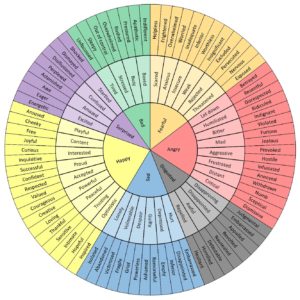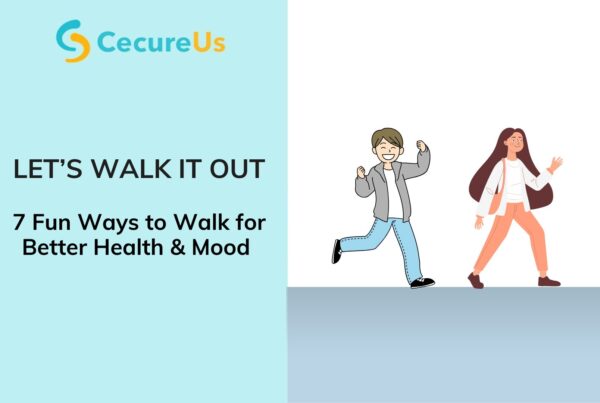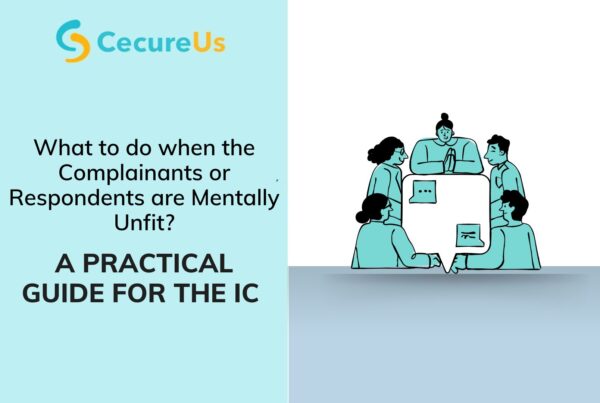Is the current wave of the Covid 19 pandemic taking a toll on your physical and mental health by clasping you with worries, anxiety, and uncertainties? Are you feeling entangled in a web of unending fears? You are just one of the many individuals sailing in the same boat. You are not alone.
From the wellness webinar session conducted by CecureUs with our expert psychologist, Dr. Porrselvi, we have derived some tips and tricks to tackle and ease fear and the associated anxiety in this pandemic.
Fear and anxiety are natural human emotions associated with our physical and mental health. We have all experienced that overwhelming fear and the anxiety associated with it at some point in our lives. But recently, the pandemic has elevated our emotions, particularly fear and anxiety, because we are concerned about our loved ones. Psychologists say that fear and anxiety are often interrelated to each other. In fact, both are considered healthy emotions that arise with the body?s Flight, Fight, and Fright response to intimidating or unusual situations, and they must be dealt with appropriately for the goodness of our mental health. To some extent, these emotions can also act as motivating factors that drive us toward our goals.
Understanding Fear:
The threats and fears that we experience in our daily lives need not necessarily be confined to our physical safety. They can also be emotional conflicts, stress at work, relationship issues, health issues, deadlines, and underlying mental health disorders, to name a few. So the stress levels of every individual and emotions vary depending on the conditions, circumstances, health, occurrences, and the person’s ability to handle them.
In the current pandemic times, most people tend to skedaddle from or avoid situations that generate or provoke fear and anxiety rather than confronting them.
I learned that courage was not the absence of fear but the triumph over it. The brave man is not he who does not feel afraid, but he who conquers that fear – Nelson Mandela.
Here are the lists of actions to take when encountering that feeling of helplessness and panic due to the flight, fight, and fright response, especially during this pandemic.
- Recognize the problem or other emotions and their source.
- Accept and respect the fear and anxiety that comes with it.
- Understand/evaluate/process the situation that causes fear and anxiety.
- Take a step back and relax to understand your emotional health better.
- Fear and anxiety are just the tips of the iceberg of this pandemic. Figure out the underlying emotion that causes fear and anxiety and regulate the mind to deal with these emotions. Do not let these emotions overpower the thought process.
- Re-approach the problem or the emotions with a list of possible solutions.
- Implement the best possible solution to overcome fear, anxiety, or other emotions that target mental health.
These steps prepare and regulate our brains to tackle stressful situations, fear, anxiety, and other negative emotions during the pandemic and in the future.
Anxiousness VS Anxiety Disorders:
Most people often confuse anxiousness/anxiety with anxiety disorders. While anxiety is a natural response to fear, anxiety disorders arise from nowhere, are persistent, and form a part of mental health disorders. How do we identify anxiety disorders from anxiety and fear?
Here are a few red flags that help us differentiate anxiety disorders from fear and anxiety.
- Anxiety disorders have no trigger. They are often intense or disproportionate unhealthy emotional responses to situations.
- Anxiety disorders have no starting or endpoints, unlike fear or anxiety.
- Fear and Anxiety often ease with time and relaxation techniques. Anxiety Disorders are prolonged and are accompanied by physical symptoms like breathlessness, sweating, trembling, light-headedness, racing heart, etc.
- Anxiety and fear lessen significantly or cease when we are away from stressful situations, while Anxiety disorders often feel uncontrollable or unmanageable and require medication.
Staying grounded when faced with fear and anxiety:
Whenever we feel anxious, particularly during these testing times, it is essential to remain grounded and refocus to attain clarity and good mental health. For this, psychologists recommend the use of The Emotion Wheel
Ref: I Feel – Emotional Word Wheel – The Feel Wheel – Australian English – Imgur
When to seek Professional Help?
These unprecedented times and the covid-19 pandemic have given rise to a spectrum of constant, perennial fears in all our minds. In these unfortunate times, we have to stay vigilant of ourselves and our loved ones and note the warning signs that call for professional help.
– The person is unable to focus on daily activities, is submerged in a state of chronic worry.
– The person is sleep-deprived, exhausted, fatigued.
– The person is socially withdrawn or emotionally isolated.
– The person avoids doing things that he/she loves to do or finds excuses to avoid or perform routine activities.
– He/ She experiences Panic attacks and is not able to figure out the triggers for fear.
– The person blacks out/zones out.
If you have a loved one, a friend, or a colleague going through tough times, convince them to take professional help at the right time. Contact Us if you are concerned about yourself or a loved one. Book an Appointment today with our wellness experts who will help you deal with your struggles.
Timely intervention acts as a saving grace and helps people understand their issues in-depth, and guides them in the right direction. Do not miss out on our Cecureus Wellness Workshops conducted every week to guide you with various coping strategies during the current pandemic.





2 Comments